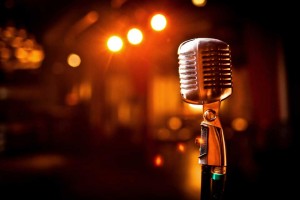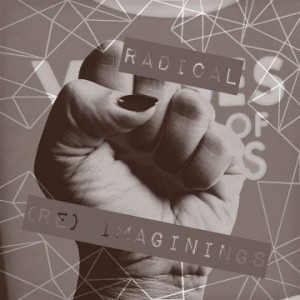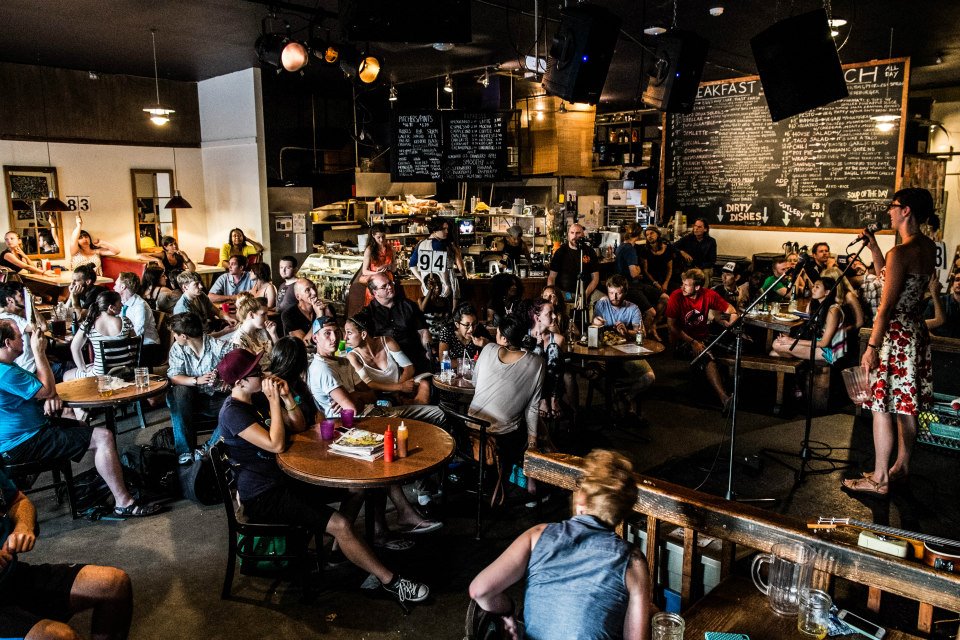Molly Billows is a queer and Indigenous activist writer whose collaborations with such organizations as the Vancouver Aboriginal Child and Family Services Society and the Access to Media Education Society work to connect Indigenous and racialized youth with both traditional and contemporary forms of knowledge, storytelling and artmaking. At this year’s Verses Festival of Words, they will be co-directing Radical Reimaginings: Visions of a Queer Future, a speculative fiction writing workshop, with Amal Rana. Sitting in a pool of afternoon sun over coffee on Commercial Drive, we discuss the power of art and storytelling to investigate identity and strengthen community.
x
Discorder Magazine: Your descriptions online start with “swift waters, secrets, and salal berries.” Can you tell me about that?
Molly Billows: [Laughs] that came about because I can’t stand writing bios. But that line also contains a lot of my story in a cryptic way — so people who know me may read into it differently than those who don’t. Swift waters is a translation of one of my nations, Homalco, a river that pours into the Bute inlet. As to secrets — whose family doesn’t have secrets?
I was adopted out as a baby, and I say “adopted out” as a way to mark that it was part of this ongoing legacy of colonialism and forced assimilation. I don’t mean to imply it was forced, — my adoption was a far more consensual process — but part of the reason that I was adopted has to do with some of the secrecy in my family and in that community. So, including that in my bio is a bit of a reclamation. And I’ve written poems about my family, and about refusing to keep secrets, and reclaiming my right not to hide where I come from.
DM: How do you maintain your ties to the Homalco community? How strong have these been throughout your life?
MB: It was definitely a process of rediscovery. Growing up, I always knew I was native, but never knew my nation until I was about 17. I would collect and piece together little bits about my story over time, because it was very shrouded in secrecy.
I definitely connected with the urban Aboriginal community first — meeting people in Vancouver who are also Homalco and Sliammon and Khaloose. It’s a very different experience, to be raised away from your nation’s land. But, in reality, I would say that the majority of urban Aboriginal people move back and forth quite frequently between their urban home and the home community.
For me, as well, connection to the community also came through activism and political events. Idle No More was a real turning point, seeing so many Indigenous people celebrating being Indigenous. It was really the first time I’d experienced that, [where] the identity [is] associated with empowerment and with pride. The takeovers of public space were really connection-forming.

DM: And how did you, or do you, experience your queer identity, especially at the intersection of your Indigenous identity?
MB: It was actually quite a difficult intersection at first, to reconcile inside myself, because many of the queer spaces I was moving in or being introduced to were predominantly white, and I wasn’t sure if I could or wanted to be part of that. But the native spaces were often very straight.
I think the queer spaces I found that I felt really good in were actually at the intersection of writing and art and queerness, like workshops — such as the one I attended with Amal Rana, with whom I now have the privilege of working. Many of these spaces were headed by QTBIPOC individuals, and I really started to gain an understanding and acceptance of myself there.
In these workshop type places, intimacy develops really quickly because a lot comes out in the writing, and you get to the core of people. Art is there as a catalyst. A lot of writing emerges around identity, talking about experiences of culture and sexuality and community. A lot of struggles come to the surface with writing, and these connection points become really visible and tangible.
DM: Tell me the story of how you came to writing.
MB: I actually remember an experience of my indigeneity when I was young. When I was in school, if you were native, you would be taken out of class occasionally for a type of “culturally-enhanced programming.” It was pretty basic, but in one session we were supposed to write “legends” — and I remember enjoying it, writing something I was really proud of. But then it was really shut down, criticized by whoever was running the session. And that turned me off writing for years, as if my writing wasn’t good enough, or native enough, to be acceptable.
I started writing again when I had the chance to travel to Peru with some other Indigenous students. At the end, as a final project, my professor suggested I explore orality more. So, I wrote my first poem. I think that framing made my writing more inclined to be performed aloud.
Right now, I write mostly performance poetry — figuring out what would look good on a page isn’t something I really do.
DM: Do you see yourself, or feel like a spokesperson for any of your communities? How has being a part of these communities informed how, and what you write about?
MB: I am very conscious of how I’m representing my communities when I write, even though I often write from a place of anger, where I struggle to understand the things around me. The finished product isn’t always necessarily angry, and as I process more and more, the type of poetry I’m able to write is shifting. I’m focusing on something other than just reactionary writing.
I don’t see myself as a spokesperson, or writing for communities. In a way, I view stories more as coming through me. The writing that comes from community experiences, for instance. I have a poem that came out of bringing a group of youth up to Haida Gwaii. I feel as if a lot of the land and the experience come through, and in that sense I don’t fully feel as if it belongs to me.
I also recognize my positionality, as an urban Indigenous person, and I feel as if my poetry has a role in reaching the non-Indigenous, giving them a visceral experience and maybe coming to better understand and be affected by different points of view. Poetry does this in a more embodied way than just standing up and giving a lecture.
Writing for and from queerness is also something that is beginning to come through in my writing — mostly, just naming it. For example, after the shootings in Orlando, just thinking about QTPOC spaces, dance spaces — which become like these sacred spaces — and our bodies moving through them. That was one of the first poems where I was writing for my queer communities.
DM: What does it mean to you, particularly in your Queer Futurisms workshop, to move beyond reactionary art?
 MB: In these workshops, Amal Rana and I draw a lot on futurisms — Afrofuturisms, speculative fiction, Indigenous Futurisms, and this visionary fiction, activist futurism writing. We see it as being essential to social justice work. When you’re just caught up in the reactionary, it can be hard to remember what you’re working towards beyond just getting through today, the next day. Writing futurisms together is this way of dreaming up alternatives to current systems. What if liberation had already been achieved, these systems already dismantled? What if we were living in a future where we were building off the knowledge systems of our ancestors, instead of eurocentric thinking? It’s a chance to worldbuild, a strategy to bring a clearer goal into our present, and to keep us going.
MB: In these workshops, Amal Rana and I draw a lot on futurisms — Afrofuturisms, speculative fiction, Indigenous Futurisms, and this visionary fiction, activist futurism writing. We see it as being essential to social justice work. When you’re just caught up in the reactionary, it can be hard to remember what you’re working towards beyond just getting through today, the next day. Writing futurisms together is this way of dreaming up alternatives to current systems. What if liberation had already been achieved, these systems already dismantled? What if we were living in a future where we were building off the knowledge systems of our ancestors, instead of eurocentric thinking? It’s a chance to worldbuild, a strategy to bring a clearer goal into our present, and to keep us going.
I think that art is both inherently political (and should never be depoliticized), but is also deeply personal. On the one hand, there is art as a survival outlet, as having a way to express things and to connect within your own community. But, there is also the way it can reach people who are not yet connected to you or your activism, and that can get around people and their perceptions. Poems can collapse time, can contain so much in a short format, and have the power to let people connect in a way that isn’t just intellectual.
x
Radical Reimaginings will take place Friday, April 28, at the Havana Theatre. For more information about Molly’s other performances in the cadre of Verses Festival, visit versesfestival.ca/wordplay/our-poets/molly-billows. For a complete program of events and performances, as well as artist bios and ticket information, visit versesfestival.ca


